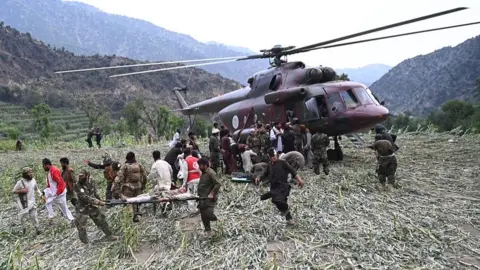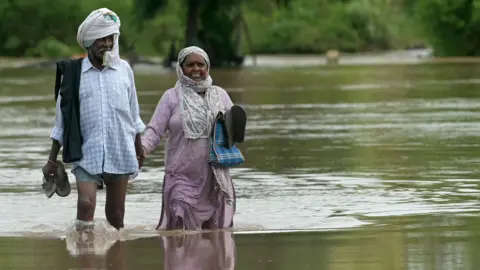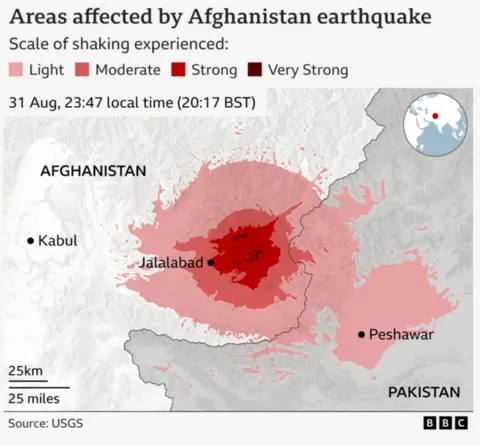Two days after a magnitude 6.9 earthquake struck her hometown in the central Philippines, Arguel Estalicas says she still feels dizzy every time she stands up.
That spinning feeling, coupled with a string of aftershocks, has left the 35-year-old tourism officer and many other survivors too scared to return to their homes, forcing them to live in tents temporarily.
The earthquake shook the northern coast of Cebu, one of the country's most populous islands, on the night of 30 September, jolting many out of their sleep.
It killed at least 68 people and wounded more than 500 others, as homes, buildings, and churches collapsed, and roads cracked.
I still couldn't process what has happened to us, Ms. Estalicas tells the BBC. I am overwhelmed with the things we experienced in the last two days.
The earthquake displaced nearly 80,000 people across Cebu and nearby provinces, with Ms Estalicas living in Medellin, near the quake's epicentre. She described how she had to run outdoors with her family during the tremors and sleep under the sky, wrapped in plastic to shield against the rain.
About 10km away, resident Lourenze Pareja recounted similar fears, sharing on social media how the quake turned what was once a vibrant community into a ghost town. He emphasized the need for prayers and support as they navigated through the aftermath.
Food, Water, and Fuel Needed
The Philippines is situated on the geologically unstable Ring of Fire, making it particularly vulnerable to natural disasters. The recent quake is one of the strongest in years, following a 2013 quake that led to over 200 deaths in neighboring Bohol island.
Rescue teams are currently searching through rubble while officials aim to restore communications, provide food supplies, and maintain order. As necessities remain scarce, some individuals like photographer Doods Demape are risking long trips to procure essential items.
Despite the looming threat of additional storms, Cebu's residents are demonstrating resilience, helping one another through their struggles. Survivors express hope that aid will arrive swiftly, emphasizing the strength of community support known as bayanihan.





















